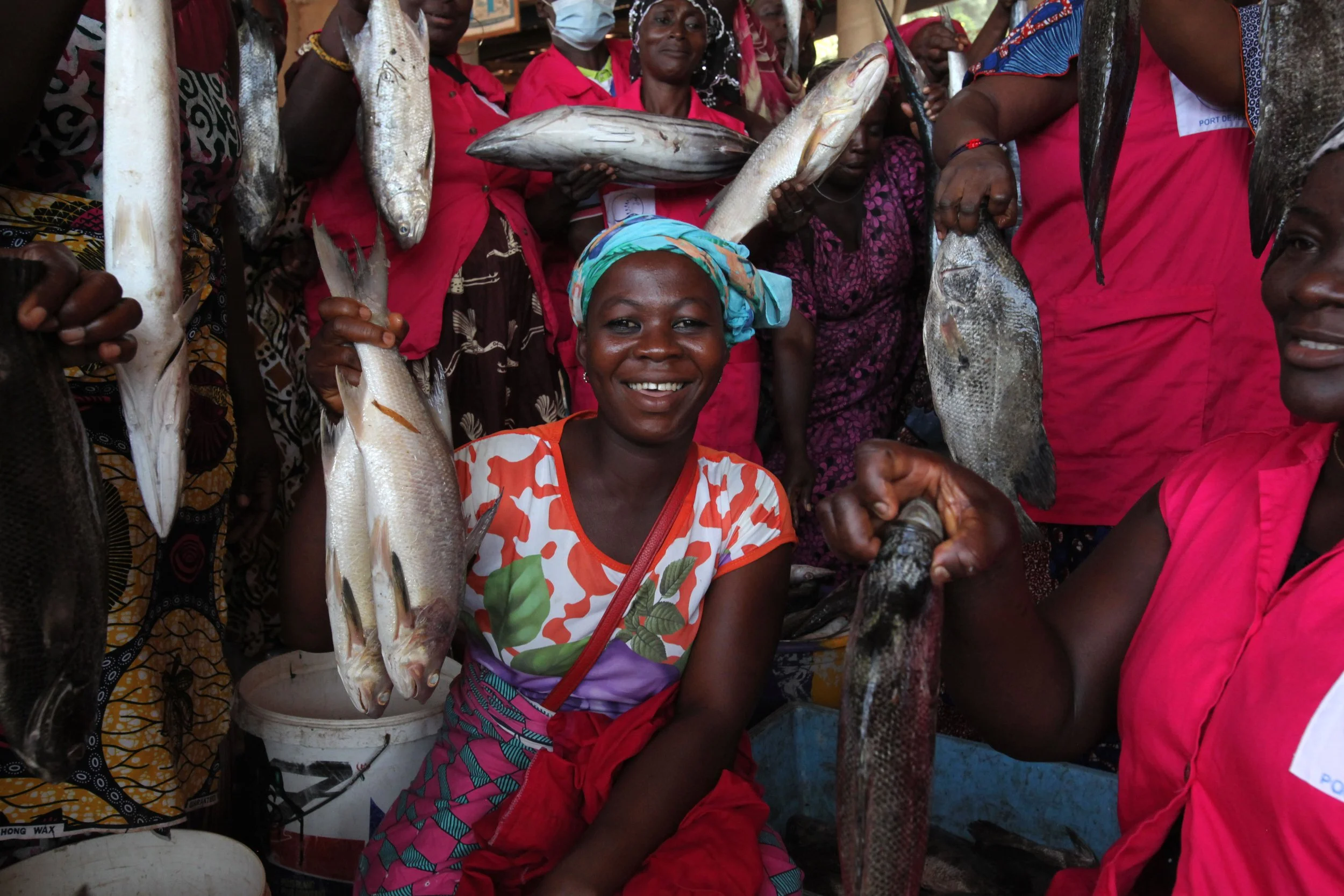The year 2021 went by in the blink of an eye. Despite restrictions to combat the Covid-19 disease, African artisanal fisheries continued to provide and deliver fish, a source of protein, fatty acids and essential micronutrients, at an affordable price to African populations, further highlighting their indispensable contribution in economic, social and nutritional terms.
However, we are concerned about competition from other sectors of the blue economy in African coastal areas, and we continue to stress that in the fight for access to maritime space, sustainable artisanal fisheries must be given priority. In this respect, the European Parliament's Fisheries Committee has prepared an initiative report highlighting these concerns.
Women in artisanal fisheries have to compete with fishmeal factories in The Gambia, or with other factories for access to land in Senegal. They struggle courageously to find solutions and continue to provide for their families. In Côte d'Ivoire, women fish processors have signed an agreement with a property developer for the construction of 500 social housing units that will enable the processors to buy a house on a hire-purchase basis within ten years. In Mali, the women processors have coupled artisanal fish farming with above-ground market gardening to supplement their supply of raw materials, and they are preparing to welcome a dozen women from other African countries to share their experiences.
We welcome the improved awareness of the harmful effects of the fishmeal industry in West Africa, both in the mainstream media and among policy makers. Indeed, as the Director General for Maritime Affairs and Fisheries (DG MARE), Ms Charlina Vitcheva, has stated, "the increased demand for feed for aquaculture must not deprive local communities of food security and livelihoods.” We welcome the fact that other organisations continue to speak out against the impacts of the fishmeal and fish oil industry, such as the Changing Markets Foundation, which is working to raise awareness of these issues among European consumers. The European Parliament's Development Committee, but also the EU's Advisory Council on Distant Water Fisheries have backed our long-standing demand that the EU support the creation of a Regional Fisheries Management Organisation (RFMO) to manage shared fish stocks in West Africa.
2021 has also seen improvements in fisheries transparency, with several African countries making more or less firm commitments. The publication of the first Fisheries Transparency Initiative (FiTI) reports from the Seychelles and Mauritania in May, and even the second for the Seychelles in December, has given greater visibility to the presence of foreign fleets in these two countries.
Women fish processors drying fish in Cacheu, Guinea Bissau. Photo: Carmen Abd Ali.
We are alarmed by trends at the international level, namely the role of multinational corporations in decision-making and the financialisation of nature conservation. In July, we highlighted our concerns about the problematic direction of the UN Food Systems Summit (UNFSS), which has opened the door to “undue corporate influence”. We continue to insist on the participation of African coastal communities in decisions that affect them. In addition, we have started a series on conservation finance and the blue economy.
We want 2022 to be a year of concrete progress for African artisanal fisheries in the International Year of Artisanal Fisheries and Aquaculture. African artisanal fisheries organisations are showing us the way forward, and calling for progress to be made in:
(1) A secure access to resources, through the creation of fishing zones reserved for small-scale fishing and co-managed by local communities, and better safety conditions on board boats.
(2) The promotion of the place of women in artisanal fisheries, within professional organisations and in decision-making. Investments are needed in infrastructure and training to ensure that women's innovations are successful.
(3) Protection of small-scale fisheries from competing sectors of the blue economy.
We wish you a happy International Year of Fisheries and Aquaculture!
Banner photo: Women from the USCOFEP-CI cooperative in San Pedro. Photo by Rich Press.











The Sustainable Fisheries Partnership Agreement (SFPA) between the EU and Mauritania is an opportunity to implement the “new generation” of agreements announced by the Commission, which should focus on the equitable sharing of benefits, local development, and the well-being of coastal communities that depend on fishing.